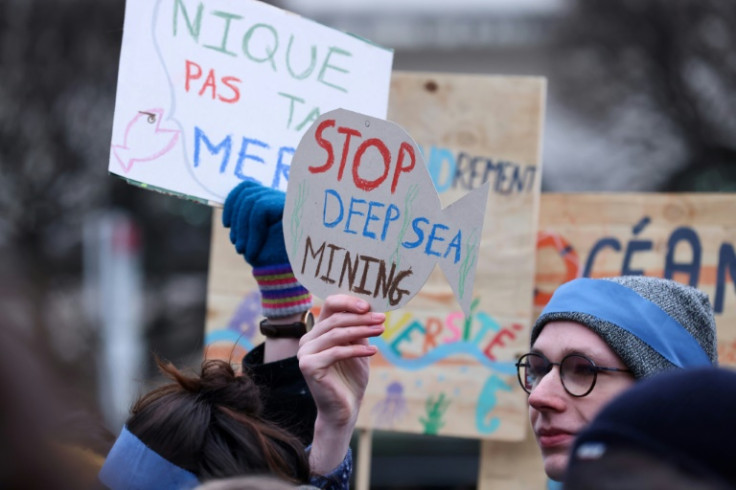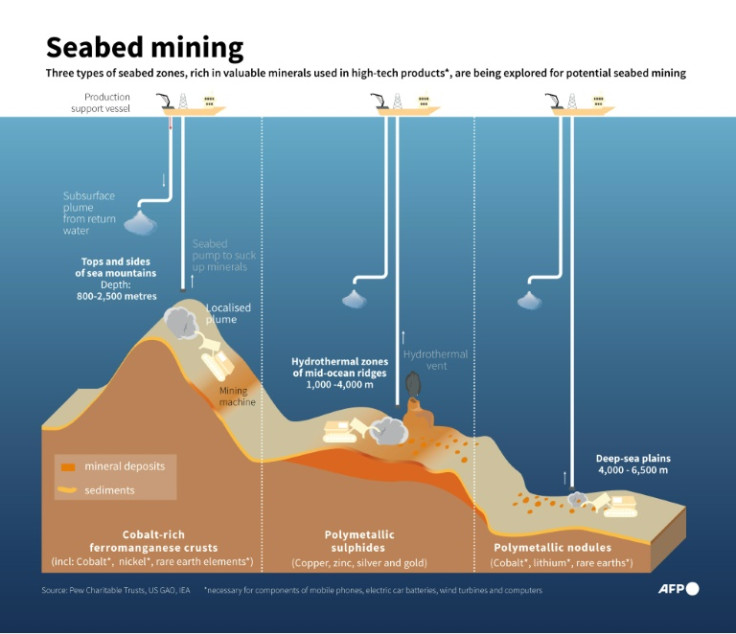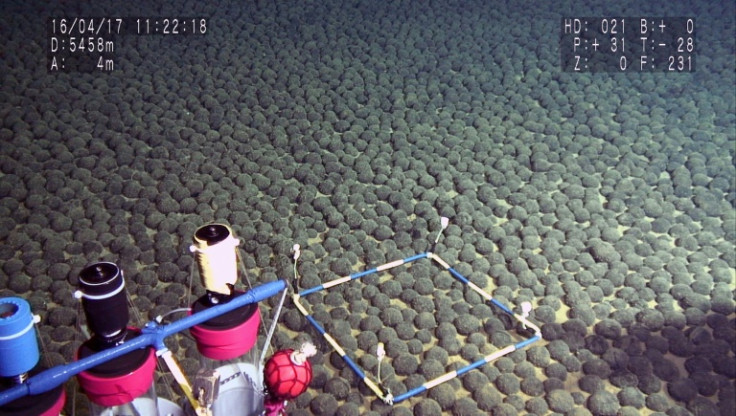
Canada's The Metals Company said Tuesday it applied to the United States to mine deep-sea minerals in international waters, a world first made possible by President Donald Trump's embrace of the industry.
Metal-containing deep-sea nodules, which have the appearance of potato-size pebbles and typically contain nickel and cobalt, are highly sought for use in electric vehicle batteries and electric cables.
But environmental groups have raised the alarm about the ecological cost of their extraction.
The request for a commercial exploitation license, submitted to US authorities by the TMC USA subsidiary, is for the mining of polymetallic nodules -- deposits made up of multiple metals -- in 9,700 square miles (25,200 square kilometers) of the Pacific's Clarion-Clipperton Zone.
"Today marks a major step forward -- not just for TMC USA, but for America's mineral independence and industrial resurgence," said Gerard Barron, chairman and CEO of The Metals Company.
TMC, which hopes to be the first firm to harvest the valuable nodules, said in March it would seek the first commercial deep-sea mining license from Washington.
It marked an abrupt shift in strategy as it had initially indicated that it would submit its request to the International Seabed Authority in June, which has jurisdiction over the seabed in international waters.
TMC justified cutting out the ISA because of the organization's slow pace in adopting a mining code that establishes the rules for exploiting seabed minerals.
Just weeks after TMC's about-turn, Trump signed an executive order speeding up the review of applications and the issuing of exploitation permits -- including in international waters.
"This latest development is just a confirmation they are a rogue and dangerous actor," Emma Wilson of the Deep Sea Conservation Coalition told AFP.
"A moratorium at the ISA would send a clear signal to states and companies that are choosing to act outside the ISA that the global community is united in defending international law."
Washington, not a member of the ISA, governs the commercial extraction of minerals from the international seabed under a 1980 law that was the basis of Trump's executive order.
The United States hopes underwater mining will create 100,000 jobs and increase GDP by $300 billion over a decade, according to a US senior administration official, who also emphasized Washington's desire to outpace China in the field.
Beijing has strongly condemned Trump's move, accusing him of violating international law and harming the interests of the international community as a whole.
According to the United Nations Convention on the Law of the Sea, which established the ISA but has never been ratified by the United States, the seabed in international waters is considered the common heritage of humanity.
Greenpeace campaigner Ruth Ramos said the announcement would "be remembered as an act of total disregard for international law and scientific consensus."
Environmental campaigners argue that deep-sea mining threatens ecosystems about which little is known.









